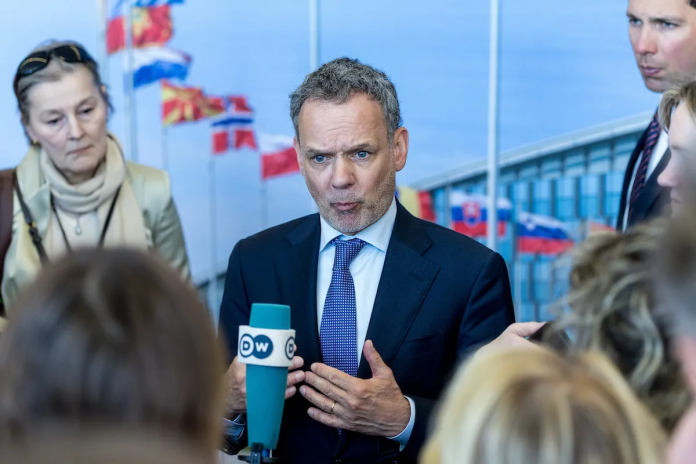The Dutch government implemented stricter controls on military and dual-use exports to Israel, requiring individual assessments of each transaction under European Union frameworks, according to Politico.
Trade Minister Reinette Klever and Foreign Minister Caspar Veldkamp announced the policy shift in a letter to parliament, citing deteriorating security conditions across Israel, Palestinian territories, and the wider region.
The decision follows the collapse of the 18 March ceasefire and renewed Israeli military operations that have reportedly killed 57 Palestinians in the past 24 hours, bringing the total death toll in Gaza to over 50,000 since October 2023.
Ministers emphasised that the new measures align with a December 2023 Dutch court ruling that prohibited F-35 fighter jet component shipments to Israel due to concerns about their potential use in Gaza operations.
Under the revised system, the Netherlands has revoked its general export authorisation for Israel, a mechanism that previously allowed unchecked arms transfers. Exporters must now obtain individual or global permits, which authorities will evaluate based on compliance with EU law and international humanitarian standards.
While the government confirmed no Dutch military equipment has been shipped to Israel since Hamas’ 7 October attacks, the policy shift reflects growing unease about complicity in the conflict. Dual-use items that serve both civilian and military purposes will face particular scrutiny. The move places the Netherlands among a small group of EU nations, including Spain and Belgium, that have restricted arms transfers to Israel.
The tightened controls arrive as Israel intensifies operations in Rafah, where over 1.4 million displaced Palestinians face severe shortages of food and medical supplies. Humanitarian organisations have welcomed the Dutch decision, with Amnesty International Netherlands calling it “a necessary step to prevent further violations of international law.”
However, the policy has drawn criticism from Israeli officials, who argue it undermines their country’s right to self-defense. The Dutch government maintains its commitment to Israel’s security but stresses that exports must not contribute to breaches of international humanitarian law.
